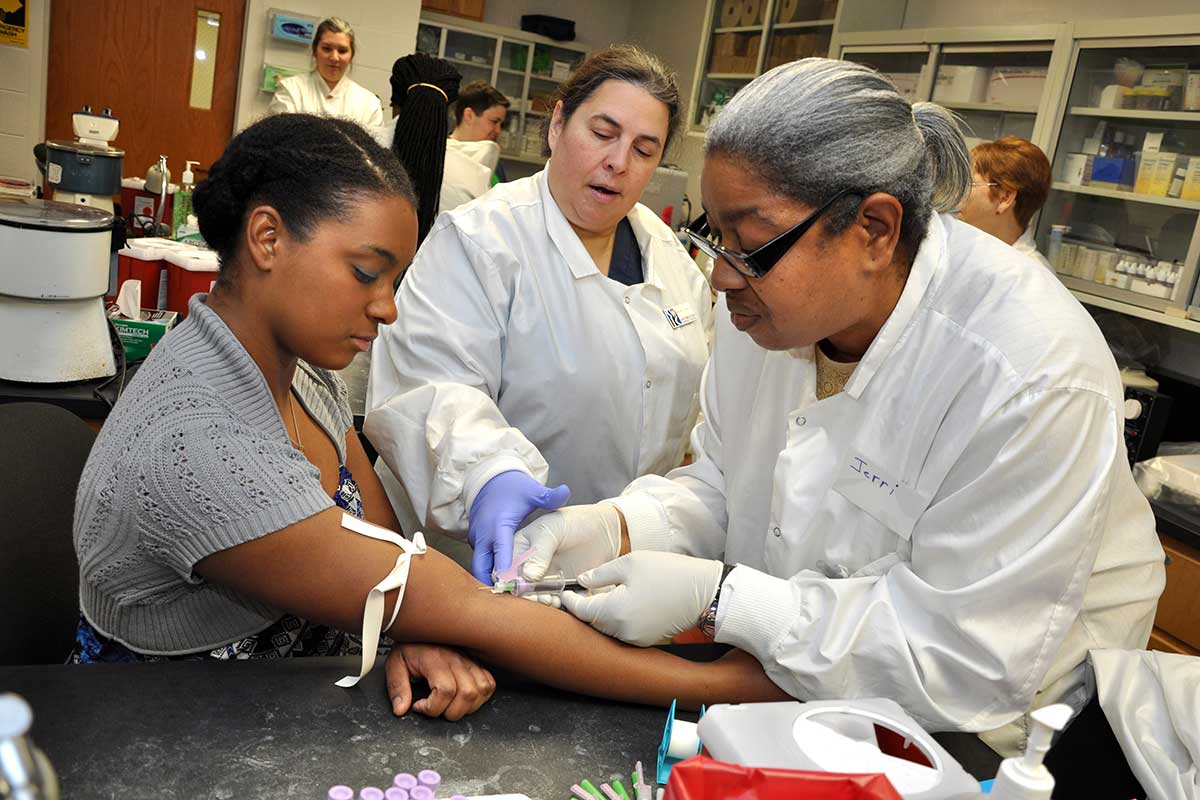Job Description
Phlebotomists:
- Collect and transport blood and other specimens
- Effectively explain methods of specimen collection to patients
- Monitor quality assurance in collection of blood specimens
Performance Essentials
To successfully complete the program and practice as a phlebotomist, students must be able to perform the essential functions of phlebotomy with or without reasonable accommodations. Students are encouraged to meet with the Disability & Access Center to discuss potential issues associated with meeting these requirements.
Career Resources
Visit the SWIC Career Activities and Employment Center for information on career exploration and mentoring.
The American Society for Clinical Pathology website provides career and licensure information.
The U.S. Department of Labor Occupational Outlook Handbook provides additional information regarding phlebotomy.
Career Opportunities
Phlebotomists are employed in a variety of settings including:
- Physicians’ offices
- Hospital settings
- Clinics
- Independent laboratories
Career Outlook
Employment of clinical laboratory workers is expected to grow by 25 percent between 2014 and 2024, faster than the average for all occupations. The volume of laboratory tests continues to increase with both population growth and the development of new types of tests.
Frequently, employers desire a year of experience in addition to this phlebotomy certificate.
Salary
Starting Salary
The average starting salary is about $24,000 plus benefits, but varies depending on the type and location of health care facility.
Increased Salary
Greater income is generally earned when working on the second or third shifts.
